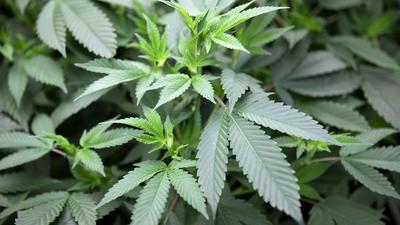Demand for legal marijuana in Illinois would far exceed licensed growers' ability to supply it, study shows
Chicago Tribune
Legal recreational marijuana in Illinois could drive demand as high as 550,000 pounds a year, far more than
the state’s licensed growers can supply, according to a new study commissioned by state legislators.
The study, performed by the Colorado consulting firm Freedman & Koski, lends support to those who argue that Illinois’ fledgling marijuana industry should expand and diversify, allowing the participation of more black and Latino entrepreneurs — people whose communities have disproportionately suffered during
America’s war on drugs.
“We have a whole industry that’s treating it like the gold rush, but you have generations of folks who are still living with all the impacts of what the criminal justice system did to them,” said Sen. Toi Hutchinson, D-Chicago Heights. “It’s unfair to discuss this in any other way.”
The possibility of
full marijuana legalization has stirred up a robust lobbying effort from many of the state’s 16 licensed growers, who have said that absent proof to the contrary, they believe they are capable of meeting demand. Their industry group, the Medical Cannabis Alliance of Illinois, has said adding more cultivators could lead to a marijuana glut that would encourage illegal diversion.
But the study concludes otherwise. Making projections based on the 8 percent of Illinoisans who admit recent marijuana use and the state’s robust tourism industry, it says current growers could meet only 35 to 54 percent of demand if recreational marijuana were legalized.

“Systems that either dramatically fall short of demand or that oversupply the market create public policy challenges,” the report says. “Avoiding both is an important expectation from the public, from producers, and from public health and public safety officials.”
If the expected market were fully met, the report says, the state could harvest at least $440 million annually in tax revenue.
Pam Althoff, the former state senator who leads the Medical Cannabis Alliance of Illinois, declined comment on the report, saying the group’s board wants to study it first. She added that the alliance has commissioned its own demand study, which should be released within a few days.
The legislators’ report is the second one to conclude that Illinois will have a marijuana shortage if the drug becomes legal for general use. Illinois NORML says the state has the most expensive marijuana in the country and is already seeing shortages of some products for medical customers.
The study suggested licensing more cultivators and allowing existing dispensaries to begin growing marijuana, since they have already been vetted and authorized by the state to handle the drug.
John Hudak, a co-author of the Freedman & Koski report, said a shortage of legal marijuana can lead to problems, including people who seek out cheaper pot from drug dealers and companies that divert medical marijuana to the recreational market.
The latter issue has happened occasionally, he said, but it is not widespread and is usually swiftly corrected.
“The medical cannabis community is very vocal,” he said. “If they feel they are being mistreated because of the legalization for adult (recreational) use, they let the media know, they let legislators know. It can become a real public relations nightmare for the industry.”
State Rep. Kelly Cassidy, right, and state Sen. Heather Steans, both Democrats representing Chicago, listen to a marijuana expert via teleconference during a hearing about legalizing marijuana in Illinois on April 19, 2017. (Abel Uribe/Chicago Tribune)
The report was commissioned by Sen. Heather Steans, D-Chicago, and Rep. Kelly Cassidy, D-Chicago, sponsors of legislation to legalize recreational marijuana. They have said they want the industry to be diverse, something that has yet to happen in Illinois.
“When we talk about equity, this industry should look like the world,” said their colleague, Rep. Jehan Gordon-Booth, D-Peoria, who is also part of the legalization effort. “It should not just be for wealthy, white men.”
Sponsors of the bill have said they plan to introduce a proposal in March or April. If it becomes law, recreational sales might not start until 2020.
The desire to diversify the industry isn’t the only tension in the state’s exploration of legal recreational marijuana. Some believe the drug shouldn’t be legalized at all, and the new demand report did little to assuage their fears.
Lobbyist Tim McAnarney of Healthy and Productive Illinois, which opposes recreational marijuana, said the report’s projections suggest a burgeoning black market when the drug is legalized. Homegrown pot, which would be allowed under some legislation, could become a ruinous mainstay, he said.
“I would anticipate that once the product is legalized, once it’s being grown in people’s homes, increased use is going to be devastating to the youth of Illinois,” he said. “The more available it is, the more it’s going to be used.”




